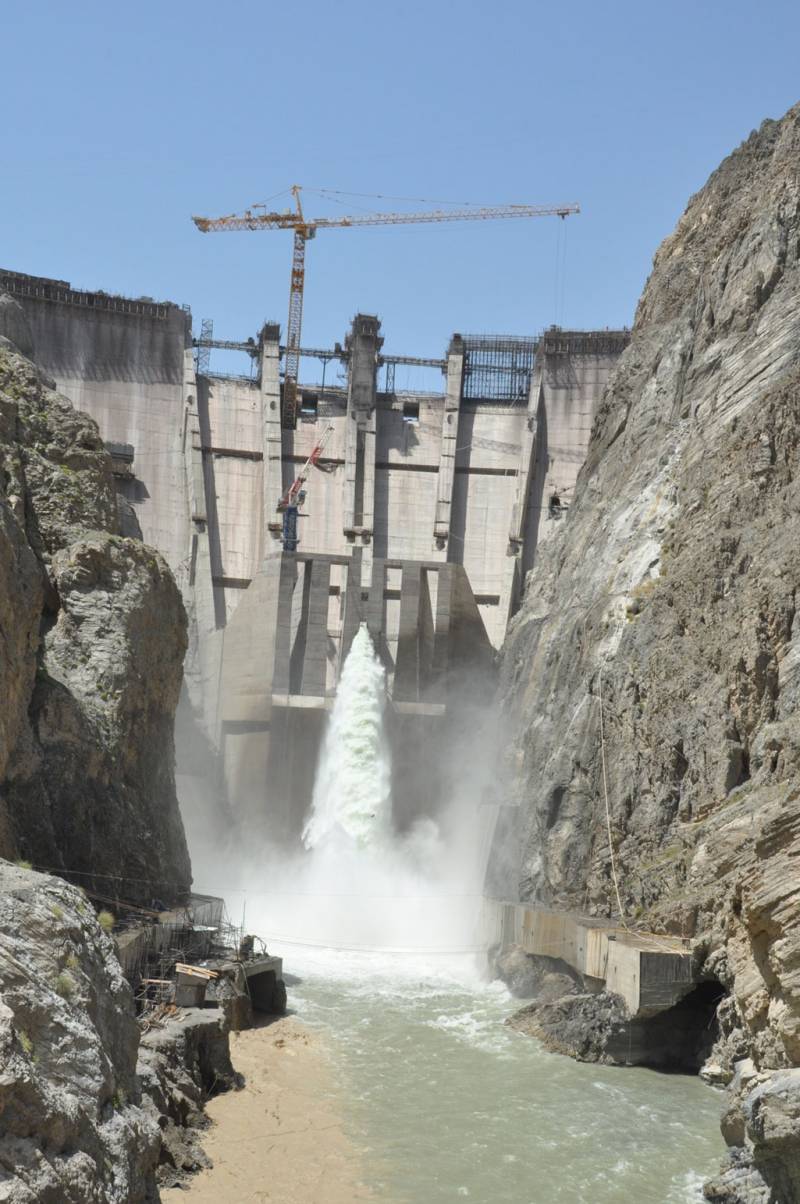Islamabad - The much-delayed 969 Megawatt Neelum Jhelum Hydropower Project (NJHP) will start power generation by February 2018.
“Around 85 percent work on the project has been completed, and the first turbine will start generation in February 2018 while 100 percent generation from the project will be possible by May 2018,” WAPDA Chairman Lt Gen (r) Muzammil Hussain said on Sunday while talking to newsmen after the connection of two portions of the left tunnel of NJHP.
In a statement issued from Wapda House, the spokesperson said the project management achieved this milestone when it successfully connected the two portions of the left tunnel with precision.
It added that during the mining operation, one of the two tunnel boring machines (TBMs) broke through the left tunnel from downstream side, joining it with the portion which had already been excavated through traditional drill-and-blast method from the upstream side.
In order to celebrate the achievement, NJHP management organised a simple ceremony at the breakthrough site, inside the tunnel, about 6-kilometers from its starting point from upstream side, wherein the WAPDA chairman performed connectivity of two sections of the left tunnel.
NJHP chief executive officer, project director and representatives of the consultants and the contractors were also present on the occasion.
The management has termed it a significant development towards completion of the strategically important 969 MW-Neelum Jhelum Hydropower Project.
Water and Power Development Authority (WAPDA) completed the excavation of left tunnel – one of the critical components of the project.
With this development, the left tunnel system from dam to the powerhouse stands excavated.
The right tunnel system is scheduled to be excavated by April 2017.
Thereafter, the water way system would go for final phase of completion. Once this is done, the project will be ready for pressurizing the tunnel system, culminating in wet testing i.e. electricity generation from the project, which is expected in early 2018.
In violation of the contract, India is building a dam on Neelum River. “However this will not affect the functioning of NJHP,” the Wapda chairman clarified.
The chief executive officer of NJHP said on the occasion that with interests and other expenses the final cost of the project will reach Rs450 billion.
While congratulating the project management, consultants and contractors on completing excavation of the left tunnel, the chairman said that Neelum Jhelum Hydropower Project is an important project in the sense that it would help overcome power shortage in the country by adding environment-friendly and low-cost hydel electricity to the National Grid.
He expressed the hope that with commitment and concerted efforts of the present management of WAPDA, this project will be completed in the shortest possible time.
“With the view to complete the remaining works of critical nature at the project, the targets have been set by rationalizing their timelines, while an effective mechanism is also now in place to closely monitor progress on the project,” the chairman said.
It is pertinent to mention here that in order to transmit electricity from site of the project to the National Grid, a 525-KV transmission line is being laid by National Transmission and Despatch Company (NTDC), which will join the National Grid at Domeli in district Jhelum through a 145-kilometer long double circuit line. The line will be completed much before Neelum Jhelum Hydropower Project begins operation.
The intake of Neelum-Jhelum is at Nauseri, 41km east of Muzaffarabad, and has an installed capacity of 969mw.
The project was originally estimated to cost Rs130 billion in 2007, which went up to Rs275 billion in 2012, partly because of changes in specifications arising out of geographical changes following the devastating earthquake of 2005.
Soon after assuming the charge as Prime Minister in 2013, Nawaz Sharif issued directives for its completion by December 2015.
But later due to funds shortage, the project was delayed which resulted in further escalation of cost to Rs404 billion.
The deadline for the completion was rescheduled twice; first to the end of 2016, then mid 2017 and now it will be partially operational by early 2018.






